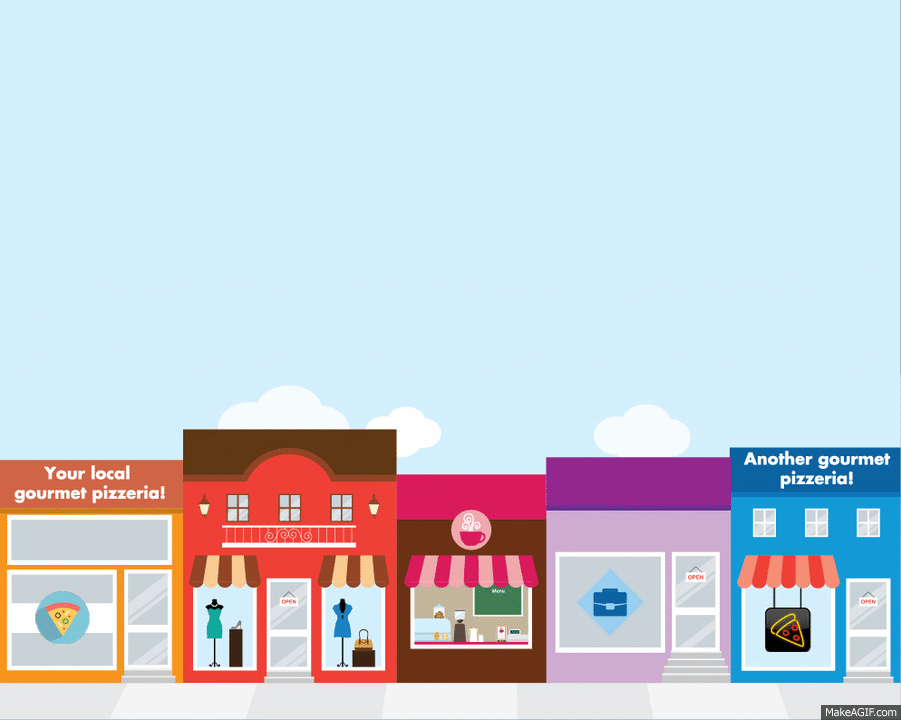
Having recently met with a client who has high law/financial technical knowledge, he reminded me that sometimes we forget to talk in terms that anyone can understand. We immediately resort to technical jargon, industry specific abbreviations and concepts because we spend countless hours in our industries and professions. It is important to keep certain information understandable by anyone - not because they are not capable of understanding, but because they are most likely specialized in other professions and haven't been involved in what services you may offer (just like I myself would not be able to give you sound legal advice).
Hopefully this post will provide a high-level overview of the digital world and how it can be used to help your small business carve out a niche of its own.
What is digital marketing?
Digital marketing in short is the ability to make yourself visible to the right audience at the right time. Keep in mind that I used to word visible: because what everyone is trying to do is grab someone's attention. Every time you want to run a paid ad, come up on the first page of Google or have people interact with your social media post you are trying to captured a little bit of that attention. Hopefully it leads to an action being taken - but before that can happen you need to present. As you can see by the breakdown below, the least amount of time is spent shopping online. The other 95% is what digital marketing is meant for: being active within the right community and interacting with users on their own terms: |
| Source: http://www.socialmediatoday.com/content/how-people-spend-their-time-online-infographic |
The different areas of digital marketing
Keep in mind that each of these areas can have an in-depth post of their own with detail specifics. This is just a brief overview - feel free to browse the blog for more information on each.
Search Engine Optimization (SEO) & Marketing (SEM)
Usually the most confusing or hard to understand concepts for many small businesses. Search Engine Optimization (or SEO) refers to the "organic" or non-paid efforts that aim to get your web page(s) to the top of Google (or other major search engines) pages. These are the search results you see underneath the ads. Keep in mind that SEO professionals don't rank your entire website for key terms but individual pages.
Search Engine Marketing (or SEM) on the other hand refers to paid efforts that get your communications on search engines. These would be paid ads or display banners that you come across in search engines. To get this positioning you have to usually pay per click (charged every time someone clicks on the ad) or pay per impression (paid based on the amount of times the ad is seen). Positioning of your ad compared to competitors is dependent on bid amount (how much you're willing to pay for a click or impression) and the quality of the ad (if the search terms match, landing page relevancy, etc.).

Email Marketing
One of the earliest forms of digital communication, email is still regarded as the most effective tool to drive results with digital efforts. And that should not be a surprise to anyone - people can customize the amount of emails they receive and marketers can customize the messaging on a personal level.
According to emailisnotdead.com article, 61% of consumers like to receive weekly promotional emails and 28% want them even more frequently.By following recently introduced CASL regulations, small businesses can communicate on a personal level with the customer. As you can see by the statistic above - majority of people prefer to receive email. When you have a customer who is willingly receiving communications it increases the possibility of an action being taken.
Social Media
Probably the most recognized marketing tactic - social media has grown into a huge tool for small businesses. With the introduction of sponsored ads, analytics tools and company pages majority of today's popular social media networks are developing their networks with companies in mind. Not just users.There are two things to keep in mind with social media as it relates to business purposes:
- Your business does not need to have a presence on every single social media network. Do some research, evaluate your resources and target the networks that make most sense.
- Don't just post promotions or sales. It's called a social network for a reason. Post helpful, useful or interactive content that users will find engaging. Also, don't just post all the time - put in the effort to interact and respond to comments to show that you are truly an active member of the online community.
Content Marketing
The hottest topic of late has to be content marketing. It has been used as a buzzword far too often that majority, if not all, small business owners have heard of it. Content marketing plays a big role in the other areas as well: it can be shared using email or social media, it plays a big role in search engine rankings as it is more likely to get shared than corporate web pages, etc.
 Hardest part about content marketing is making it relevant. You want to create a blog post, ebook, video - whatever that piece of content may be - that is going to engage users in a way that evokes an action. That action can be for them to share it with their own network/community, to fill out a form, download a report, etc.
Hardest part about content marketing is making it relevant. You want to create a blog post, ebook, video - whatever that piece of content may be - that is going to engage users in a way that evokes an action. That action can be for them to share it with their own network/community, to fill out a form, download a report, etc.
The best content usually evokes emotion in users, making them feel a deeper connection with your brand: bring out a happy feeling, helping resolve a task faster, solving a difficult problem, connecting them closer with others, etc.

The best content usually evokes emotion in users, making them feel a deeper connection with your brand: bring out a happy feeling, helping resolve a task faster, solving a difficult problem, connecting them closer with others, etc.
Analytics
The main difference between traditional and digital marketing efforts is the ability to track and evaluate campaigns. Big data is big business now; there numerous companies dedicated to providing analytics solutions that can track anything from your paid advertisement clicks to website interactions.
The most common tools that small businesses use are the ones that are free: Google Analytics, Facebook Insights, Twitter Analytics, etc. Majority of online networks come with some sort of reporting ability. Be sure to set goals before you start and associate those goals with tangible performance indicators (or stats). This will help you measure how well something is work (or not). That way you can be ready to tweak your efforts to make sure you are getting the most out of your marketing.
This is just a brief list of online marketing areas that are most common - there are plenty of other ways to engage an audience online. We've put together a list of emerging concepts for 2016 & beyond that you can take a look at here.
Where to Begin
This depends on where your small business currently stands with its online presence.
Doing things yourself may be more cost effective but remember that efforts, when done incorrectly, can have a negative effect on your business. If you're unsure of how to do something always do research, find step-by-step guides or consult someone who can steer you in the right direction.
On Your Own
If you've got the time and a can-do attitude; there are plenty of resources, tools and solutions to help you automate digital marketing and do it all on your own. Keep in mind that certain things might be easier than others: sharing a Facebook post on a company page is much easier than researching a good key term to rank every single page of your website. As is editing all the different elements of those pages requires technical knowledge.Doing things yourself may be more cost effective but remember that efforts, when done incorrectly, can have a negative effect on your business. If you're unsure of how to do something always do research, find step-by-step guides or consult someone who can steer you in the right direction.
Hiring or Outsourcing
If you're feeling overwhelmed by the amount of things to learn you can always find someone (whether hiring or outsourcing) to do it on your behalf. Sometimes it might be better for business owners to focus on what their expertise are and let professionals handle the marketing side. After all, many business utilize outside accountants, graphic designers and other service providers. In the same way a digital marketing professional or company can be utilized to help build an online presence.
Not all freelancers or companies will be right for you. Digital marketing services can be pricey, and majority of small businesses don't have the budget to outsource ALL digital efforts. At the same time, be wary of any company or professional guaranteeing you instant success. Much like other functions, digital marketing takes time and on-going work in order to yield positive results.
Not all freelancers or companies will be right for you. Digital marketing services can be pricey, and majority of small businesses don't have the budget to outsource ALL digital efforts. At the same time, be wary of any company or professional guaranteeing you instant success. Much like other functions, digital marketing takes time and on-going work in order to yield positive results.
Helpful Resources
Regardless of where you stand, below are some of the posts we've put together that can help make your efforts a little bit easier:
Hope that was helpful! If I've missed something or you'd like to add more, the comment section is a good place to do so.
 Here is why:
Here is why:

































